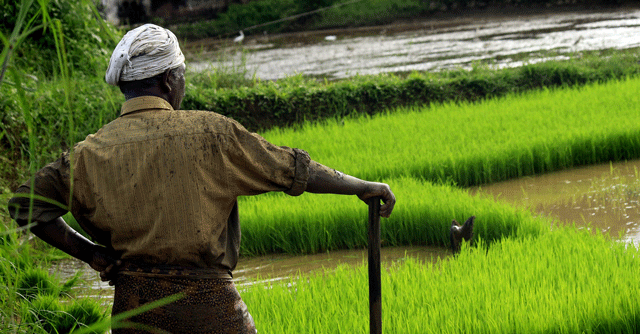
Agri-tech startups pivot to tech advisory to attract farmers

Kumar Ranjan, chief executive of agri-tech venture E-Feed, built ludo and other casual games into his app, which he distributed to farmers. His core business, however, is to sell advisory services to dairy, poultry and aqua farmers in the country.
The advisory model is a growing trend for agri-tech startups in India, which are increasingly offering tech-driven data and insights to farmers. The same is also reflected in Nasscom’s Indian Tech Startups Report, 2021, which notes that "farm advisory" is the top solution-driven startup category in agri-tech through the previous year.
As early-stage startups such as E-Feed look to target a nascent sector, existing players are also pivoting into this offering. One such startup is Agribazaar, which has grown a new vertical in its business that offers analytics-driven data to its registered farmers — and charges a premium for the products that customers buy on its platform by promising better quality of produce.
“We’re trying to use artificial intelligence (AI) and machine learning (ML) to analyse the satellite-based soil data that we have, to see if we can help improve the produce quality,” said Amith Agarwal, chief executive of Agribazaar, an online agri-trading marketplace. “We’re drawing data from these analytics to learn the ideal crop for a field, and yield estimates. Based on this, we’re offering advisories to farmers registered on our platform,” he added.

Agarwal claims that Agribazaar already has over 7 lakh registered farmers on its platform, of which over 3.5 lakh are returning users — and regular users of its advisories. While Agribazaar does not charge a subscription fee to farmers for using the advisories yet, it adds a premium on the produce that is sold through its direct-to-consumer (D2C) marketplace.
“Consumers do not mind paying a premium, and the efficiency of our data-based farm advisories is 99.99 percent, which works for all parties involved,” Agarwal claimed.
E-Feed, too, is relying on advisories as the key model for its business. It has a team of scientists, which is augmented by the involvement of “ration balancing software”, which is integrated into his mobile app. “The software lets farmers select their geographical location, choose the type of animals in their farm, and the target prices they can afford. Once this is selected, they can then draw out a farm feed composition tailored to their needs,” said Ranjan.
Based on a combined output of scientist advisories and the software data, dairy, poultry and aqua farmers are recommended the right feed for animals, which can be purchased directly through E-Feed’s app. “There’s a clear return on investment, too. Dairy farmers using our data to purchase feeds are already seeing almost three litres of more milk per animal every day,” Ranjan claimed.
Driven by the advisory model, E-Feed now claims to have over 10,000 dairy, 30,000 poultry and one lakh aqua farmers are already using its services. Ranjan said that roughly 1-3 percent of its users are paying the membership fee for full access to its feed advisories as of now.
A January 2022 agri-tech startup report by PricewaterhouseCoopers and the Federation of Indian Chambers of Commerce & Industry (Ficci) also noted the rising trend of advisories being offered by agri-tech startups, stating, “AgriTech start-ups in India are endeavouring to solve multiple challenges prevalent in the agricultural value chain. These include suboptimal productivity, low efficiency in the supply chain, lack of access to markets and institutional credit, low penetration of crop insurance, poor-quality inputs and lack of market linkages.”
The study further notes that “precision agriculture”, which refers to the use of data-driven analytics as a key resource to maximise farming efficiency, is a major investment area in the Indian agri-tech space through the past year.
Ashish Aggarwal, vice-president and head of public policy at Nasscom, said that data-driven agri-tech advisories are showing their impact on farming within shorter time spans than previous farming techniques. “We also have drone startups working with the agri-tech sector in India to offer greater insights,” he said.
